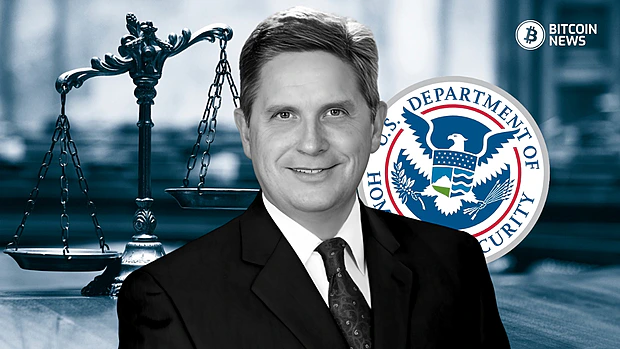James Murphy, a lawyer involved in digital asset cases, has filed a lawsuit against the U.S. Department of Homeland Security (DHS). He seeks to find out if the U.S. government knows who created Bitcoin.
The lawsuit was filed on April 7 in a Washington, D.C. federal court and uses the Freedom of Information Act (FOIA) to request documents. Murphy believes the documents will show if DHS officials really interviewed the person or people behind Bitcoin in 2019.
At the center of the case is a statement made by DHS Special Agent Rana Saoud at a financial intelligence conference in Miami in 2019. Saoud said DHS agents flew to California and met with four people they thought were involved in creating Bitcoin.
“The agents flew to California and they realized that he wasn’t alone in creating this,” Saoud said. “There were three other people. They sat down and talked with them to find out how this actually works and what the reason for it was.”
Murphy argues if this meeting happened there should be notes, emails or other records to prove it. “My FOIA lawsuit simply asks for the notes, email and other documents relating to that alleged interview,” he posted on X.
Murphy has been a Bitcoin investor and miner since 2017 and says his motivation is transparency not fame or speculation. “I’m not hiring investigators to try to track down Satoshi,” Murphy said. “I’m seeking government records under transparency laws in effect in the U.S.”
He added:
“If DHS did, in fact, learn Satoshi’s identity, then I’m not sure what the rationale is for dozens of government employees to have this information but withhold it from the general public.”
Murphy also supports former President Donald Trump’s push for a Strategic Bitcoin Reserve and believes revealing Satoshi’s identity will help grow Bitcoin adoption in the U.S. and worldwide.
Murphy filed a FOIA request with DHS on February 12 asking for any records related to the 2019 interview. According to the lawsuit, DHS has not responded, violating its FOIA obligation to provide or deny the requested information.
With bitcoin becoming a globally traded asset, Murphy says it’s in the public’s interest to know more about its history.
“Given the massive public and private investment in bitcoin, it is important for Mr. Murphy and the public to understand better what the federal government knows about the identity of the actor(s) responsible for creating Bitcoin,” the lawsuit says.
Murphy’s lawsuit has caused both support and backlash.
Some in the Bitcoin community think finding out who created Bitcoin will help adoption and trust in the system. Others are worried that unmasking Satoshi will go against the decentralized spirit of Bitcoin — and even put people’s lives at risk.
Digital assets investigator ZachXBT warned that the lawsuit will “doxx” innocent people. “Privacy deserves to be respected unless you harm others maliciously with intent to do so,” he said.
Murphy acknowledges the risks and even admits the DHS agents may have made a mistake in 2019. “I think DHS agents may have met with bitcoin code maintainers, or with actual Satoshi imposters,” he said. “But who knows?”
That is another possibility that many others believe—this is probably a ghost chase, and the person DHS actually interviewed might have been the loudest Satoshi impersonator in 2019, Craig Steven Wright.
Wright has been claiming to be the creator of Bitcoin since 2016. He was later challenged by COPA, an alliance of Bitcoin advocates, developers and companies, in a U.K. court.
The court ruled that Wright has made up all his claims, is definitely not Satoshi Nakamoto, and that he “lied extensively” under oath. In the latest development in the Wright VS COPA case, the court fined Wright £225,000 over the use of AI in his appeal bid.










